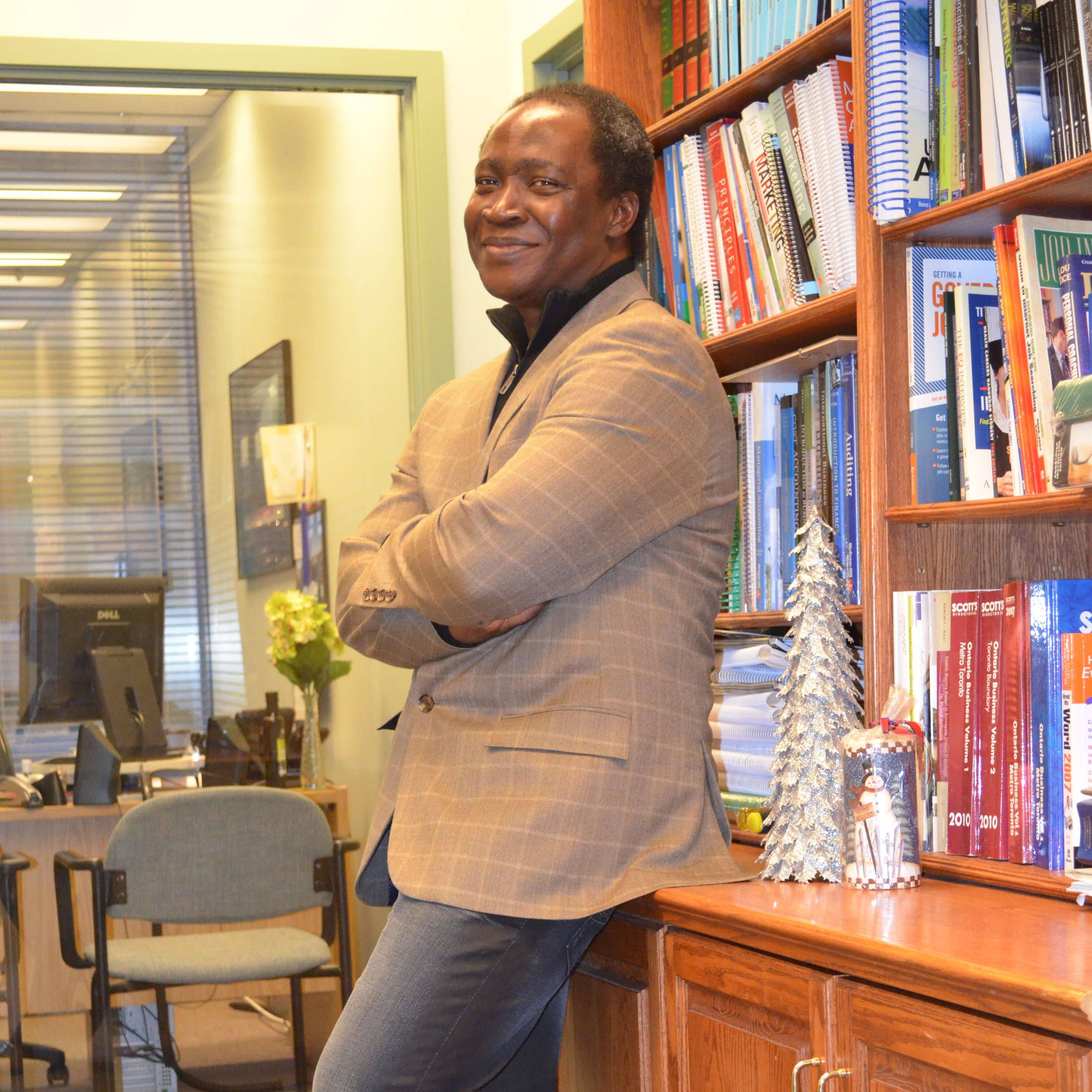Medical office administration instructor Ayo Adetoro has been teaching at Herzing for over 15 years
If you’re thinking about studying medical office administration, there are likely three big questions on your mind:
1) What exactly will I learn in this program?
2) Will I find a job quickly after graduation?
3) Am I a good fit for a medical office career?
In fact, these kinds of questions apply to anyone who’s going back to school and wants to make sure they choose the right program. To find your answer, you need to know what to expect in class, what skills you’ll need to succeed, and who’s teaching the course.
We’re tackling all of these questions here today by going straight to the source—Ayo Adetoro, instructor for the Medical Office Administration (MOA) program at Herzing, and a healthcare professional with decades of experience.
We interviewed Ayo to learn more about the program, career path, job outlook, and more. By the end of this post, you’ll have a much better idea of whether MOA training is right for you, and what steps to take next.
Q: Ayo, can you share a little about your professional background in health care?
Ayo: My professional background is in pharmacy and business management. I am a member of the Ontario College of Pharmacists, Ontario Pharmacist’s Association, and the Canadian Society of Hospital Pharmacists.
I’ve been teaching for over 15 years, in both the medical office dministration program and in the business administration program at Herzing College.
I have a passion for sharing knowledge and preparing the next generation of healthcare providers.
Q: What are the most important skills students learn in your medical office class - the skills that get them hired after graduation?
Ayo: The most important skills we teach in the MOA program break down into two categories:
1) Administrative—How to triage clients, coordinate and review diagnostics, liaise between physicians and other healthcare providers.
2) Clinical—Educating clients, assisting as required during examinations, measuring and documenting vital signs, computer skills (MS Office applications), and interpersonal communication.
These are the skills you need to get hired as a medical office administrator.
Q: What parts of MOA training tend to be most challenging for students?
Ayo: It’s usually medical transcription and terminology. We study human anatomy and medical terminology, so students need to learn all the different structures and systems of the body.
Plus, we learn diagnostic and treatment procedures that apply to those different body systems. They need to understand the basic language of medicine, which is new for most, and can be difficult at the start.
Q: Do you need some experience in health care to join the medical office program?
Ayo: No experience in healthcare is required. All you need is a desire to learn, willingness to work hard, and a passion for caring for others. Being motivated to help and care for people is the key.
Q: What aspect of medical office training do your students enjoy the most?
Ayo: Students really enjoy understanding disease processes—the ways different diseases impact the human body.
They also enjoy learning how medical office administrators help patients navigate our complex healthcare system—how MOAs help patients access the services they need.
Q: What’s demand like for MOAs? Is it hard for students to find jobs after graduation?
Ayo: There is strong demand for medical office administrators. Some of our students get hired straight out of their internships!
There are employment opportunities in many different settings— like family clinics, dental offices, walk-in clinics, hospitals, and insurance provider companies.
Q: How does someone know they’d make a great MOA? What basic qualities do students need to succeed in your program?
Ayo: The qualities needed to succeed in this program (and career) include:
- organizational skills
- logical and critical thinking
- problem solving
- dependability
- desire to care for and help others
Q: In your opinion, what’s the best thing about becoming a medical office administrator?
Ayo: Navigating the healthcare system is complicated for most people. MOAs work with patients to make the experience less stressful. They help patients get the right care, at the right time.
Plus, they help the entire medical team by ensuring the clinic runs smoothly. It’s an important role where you can really make a difference.
A big thank you to Ayo for talking with us and offering an inside look at MOA training and careers. We're very lucky to have you on the faculty at Herzing!
Is Medical Office Administrator Training Right For You?
Herzing’s MOA program takes no more than a year to complete and includes an internship. Students learn medical office procedures, healthcare computer software, billing, appointment scheduling, medical records, transcription, and medical terminology.
This diploma program also includes certificates in Vital Signs Clinic, First Aid, and CPR.
Learn more about the program by filling out the Request Information form on this page. Get fast, free information sent straight to your email.
Or click below to browse the medical office administration program for yourself. See a detailed course list, learn about careers, and chat live with an admissions advisor.
We can answer all your questions about applying, financial aid, start dates, class schedules, and more. Find out if this career is right for you, and exactly how to get started. 






